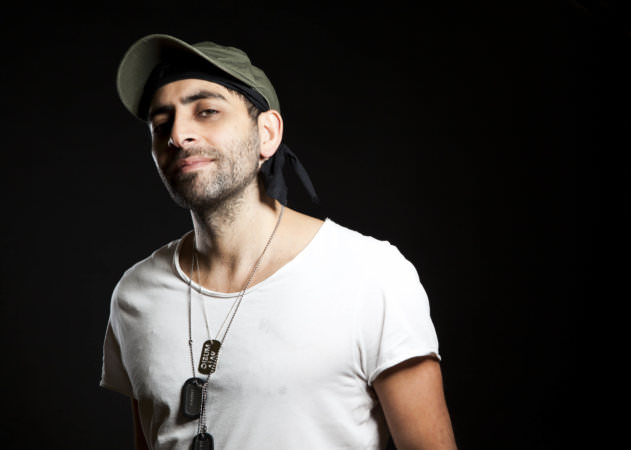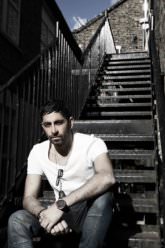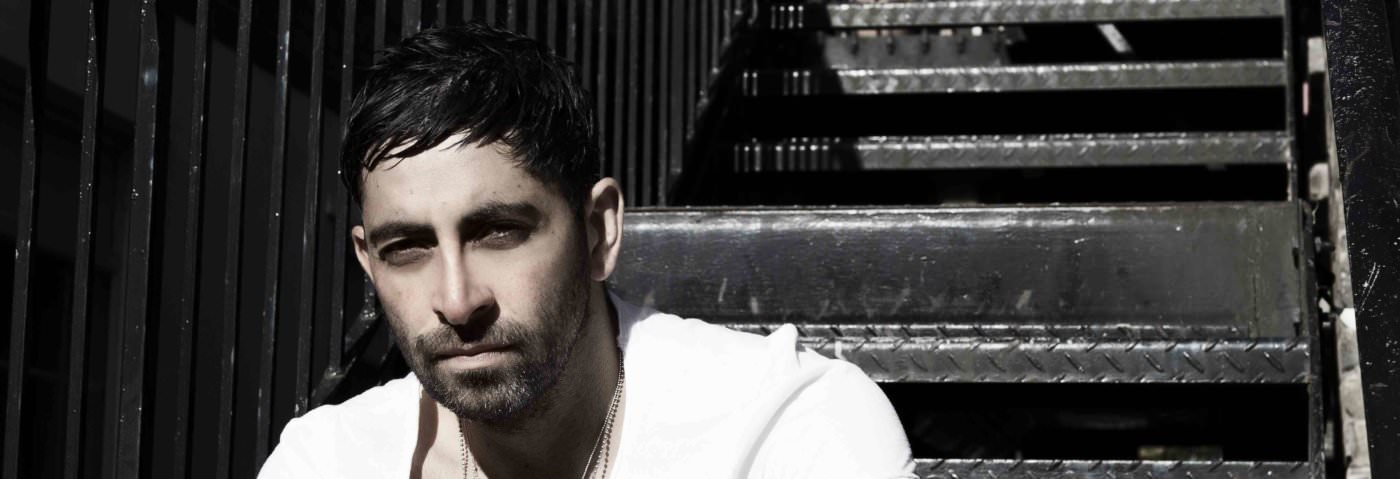In the past, Darius Syrossian’s name has often been preceded by adjectives such as ‘overlooked’ or ‘underrated’; but after a stellar string of jackin’ dancefloor jams for the likes of Klangkultur, OFF Recordings and Magnetic he’s now firmly in the spotlight. The self-proclaimed ‘slave to true house music’ sits down for an in-depth chat about cooking beats, house music fads, the DJ/producer dichotomy and why he’ll always speak his mind.

Attack: It would be fair to say that 2012 was your real breakthrough year, but you’ve been heavily involved with house music since the mid 90s. Can you tell us how you first got involved and your journey up until this point?
Darius Syrossian: I got involved in house music in the early 90s, going to outdoor raves with friends who were all a lot older than me. Then I got a job working at Global Beat Records, which in the mid-90s was one of the world’s leading underground vinyl outlets. I was involved in the vinyl side of things until 2009, and from 2004 to 2009 I ran the vinyl section at the legendary Crash Records
. I turned to producing at that time. It was nice to see DJ Mag recognising my work and nominating me for the Best of British 2012 Breakthrough Producer award, but as I’ve said before, I try not to concentrate on stuff like that too much.
Coming from Leeds, which has always had a strong house music heritage, how do you feel about the scene in the city, both past and present?
I think Basics is the reason why Leeds has such a strong underground scene. It was one of the first – hang on, the first – club to have underground house music weekly anywhere. At that time it was all about outdoor raves and so on, but then by the mid 90s Leeds had Hard Times, Up Yer Ronson, Orbit, Love To Be and a whole host of other nights all catering for underground house and techno, with the biggest DJs spinning every week.
That culture has continued until to today with plenty of established nights in the city. I think right now it’s better than it’s ever been and I think this is down to the younger generation really being into house music as opposed to the majority of them being into indie and rock music. Now you can see the younger crowd – I’m talking 18, 19, 20, 21 year olds – really loving it and feeling it. It’s great for the scene.
You’ve had some big records in the last 12 months on a wide variety of labels – ViVa, Area Remote, Magnetic, Hot Creations and Klangkultur. While all of these labels tend to have very distinctive sounds, all of your tracks still sound very much like you. How and why do you think that is?
When I started producing properly, I kind of did what a lot of people do which is make tracks that were ‘the’ sound at the time. I released ‘Luis Conte’ back in 2009 it that had that type of heavy percussive drum sound which was all the rage. That’s really the track which got me noticed and put me on the map. But then when Nyra and I decided we wanted to go solo, I sat down and thought: “Right, no more making music for current trends.”
At the moment it’s this nu-disco, slow basslines, almost pop music sound that’s the rage and I can’t stand it. If I want to listen to disco, I’d listen to the 4,000 real disco vinyls I’ve collected over the years while working in my record shop [laughs] – not some sampled disco that’s been bastardised by Ableton and then slowed down, with a beat shoved over it. No chance!
I decided I want to make music from my heart and so I never make music for a label. Labels come and go, fads come and go. If you follow a fad you’ll come and go too. I’ve tried to develop my own sound so people know me for that.
Your studio seems well stocked with kit, can you give us a rundown of your current set up?
I use a lot of hardware; really old hardware that I’ve collected over the years. I have a Roland JD-800, a Roland 505, a Korg ESX-1
, a Korg ER-1, a Roland JP-8000. On top of these I edit and chop everything up in WaveLab, which is a really unorthodox way of making music, but it works for me. It’s not what you use – it’s the results you get.
So you use WaveLab as your main DAW?
I use WaveLab for many things but mainly for editing. A lot of the stuff I record from my hardware directly into WaveLab. I don’t like things to be too quantised so I play stuff manually and then for me if it sounds good by ear that’s great. It might be a little out of time but I do that on purpose. It gives it a live feel. Too much house music is over-quantised and it sounds sterile.
Can you tell us a bit more about your music-making process? How do you start tracks?
For me it’s about finding a killer bassline and groove. I can work for hours trying to get that killer bassline. I mess with my Roland or Korg and try to get a bassline, snare pattern and beat to all sit nicely together. Then when I think I have something I leave it playing and go wash up or cook [laughs]. If I’ve had the same loop on for about 30 minutes and I come back to it and I’m still not bored of it then it’s passed the test, because you’ll definitely not be sick of it after five minutes in the track. After this I start adding more elements, turning it into a full track.

What’s the story behind your new musical moniker My Side Project, how did that come about?
Well, that was going to be my moniker, but ended up becoming the name of the track. I had too many releases coming out and I didn’t want to release too much under my name, so I made a moniker so I could still release the music without this over-saturation of Darius Syrossian tracks.
I gave Sneak a copy of the track, ‘My Side Project’, and he played it at the Faversham garden party in Leeds. I was sent a video of it being played there and put it on my YouTube. Off the back of the video I got offers from so many big labels, but I’d already signed it to my friend’s label in Canada. I was flattered to have been contacted by labels like Hot Creations and Defected. Then I thought since the response had been massive, to hell with the moniker!
So did you start out as a DJ and later move into production? What are your thoughts on the current state of affairs in which DJs generally only get booked if they have some well-received productions under their belts?
I’ve always produced, but when I got my decks in 1994 computers weren’t even good enough to make music on and the kit was really expensive. Even by the late 90s, a soundcard was still around £1,500. These days everyone can make music with little expense and that’s not a bad thing – it’s a good thing – but there are also so many DJs now due to the digital age.
Of course getting bookings should be linked to producing, unless you’re a resident DJ for a very well-established night which is known for the music it plays. Otherwise how else is anyone on the other side of the world going to know about you? And what you’re about musically is something they need to relate to. If you put out five or six big tracks that people like and you have a certain sound, then people from Tokyo to New York will know what you’re about musically and want to book you.

07.07 PM
Great read this,
especially the production tips
Top producer, Dj, and attitude.
07.35 PM
Enjoyed this interview as well . straight and full of handy tips!
Greetings from Berlin
08.04 PM
Darius is one of the few DJs who is all about being real and he has made it himself through production and his own promotion without a PR team! A real inspiration for those coming through and he has a huge passion for new music and artists, all in all one of the nicest guys in the game (which is a rarerity as DJing is one of the hardest hustles!) 2013 will be another huge year for him!
11.02 PM
In awe of this guy, had some awesome nights in sankeys Ibiza and will continue to follow darius. Keep it up bro!
11.34 AM
Heard he used FL Studio to get ideas down?